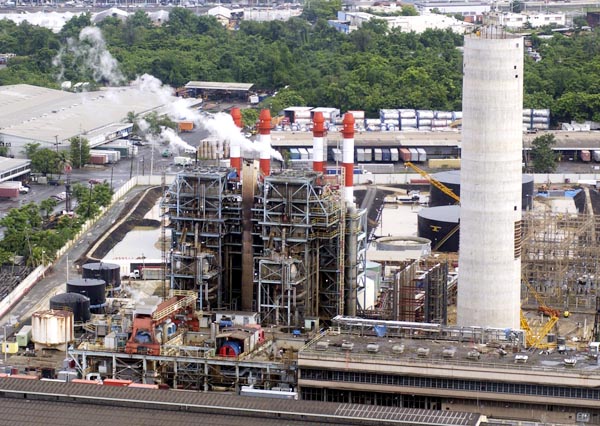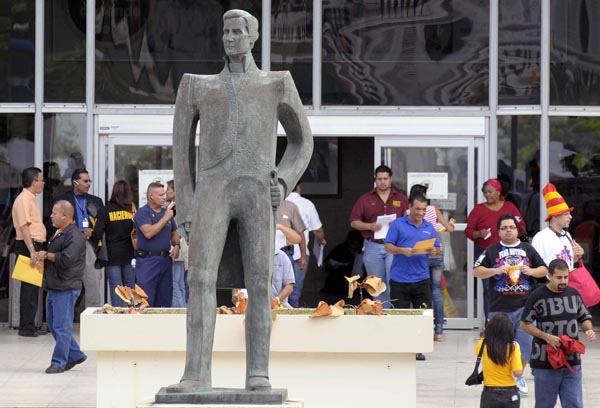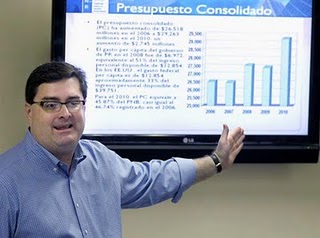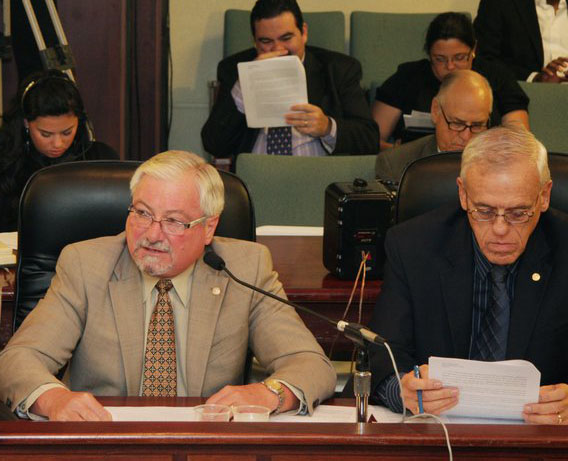
Come January, when the new administration headed by Gov.-elect Alejandro García-Padilla takes over the reins of the government, it will have 90 days or so to present stateside credit agencies a “viable and concrete” plan outlining its strategy to tackle Puerto Rico’s fiscal problems, executives from the Center for the New Economy said Tuesday.

The lack of seriousness and responsibility reflected by the comments made by the president of the Government Development Bank of Puerto Rico are truly disturbing.

Puerto Rico’s public finances have stabilized but are still weak, its indebtedness levels and rates are unsustainable, its fiscal viability over the medium term is uncertain, and its economic outlook remains quite modest, said the Center for the New Economy’s Policy Director Sergio Marxuach during an analysis of the administration’s current and future budgetary activity.

The surprising paralysis of the certification of the representatives of the public interest in the Puerto Rico Electric Power Authority’s governing body is the most recent example of an arbitrary system that has taken power with impunity and that self-reproduces at the expense of the best interests of the people.

The Puerto Rico Electric Power Authority’s new residential rate that goes into effect today for the island’s residential customers is a temporary subsidy that does not imply efficiency improvements at the agency, the Center for the New Economy concluded Wednesday.

Basing the future of Puerto Rico’s economy on an uncontrollable factor, such as an amendment of the U.S. tax code, is not the safest route to take to achieve growth and is not the “silver bullet” the island needs to secure long-term stability, Sergio Marxuach, public policy director of the Center for the New Economy, said Thursday.

The approved plan to increase the United State’s debt ceiling will not solve the country’s fiscal problem, and could actually worsen it by reducing economic activity on the short- and mid-term, Sergio Marxuach, policy director for the Center for the New Economy said Tuesday.

The Treasury Department’s preliminary year-end General Fund report released Wednesday showing an uptick in revenue collections may not necessarily be a sign of real economic improvement, the Center for the New Economy said Thursday upon analyzing the results.

Although the government has managed to successfully contain public spending since 2008, the island’s indebtedness rate has soared at a faster pace than its Gross National Product during the last three years, currently reaching a 50-year high.

The task of repairing Puerto Rico’s retirement systems debacle, which credit rating agencies have warned could affect the island’s credit rating, will require “tolerance, capacity for frank dialogue, a commitment to negotiate in good faith and willingness to make and honor concessions by retirees, current government employees and the general public.”

Nearly 15 days after Law 154 — imposing an excise tax on sales by local subsidiaries to their foreign parent companies — went into effect, members of the Puerto Rico Manufacturers Association got a chance Friday state for the Legislative record their opposition to the measure.






NIMB ON SOCIAL MEDIA